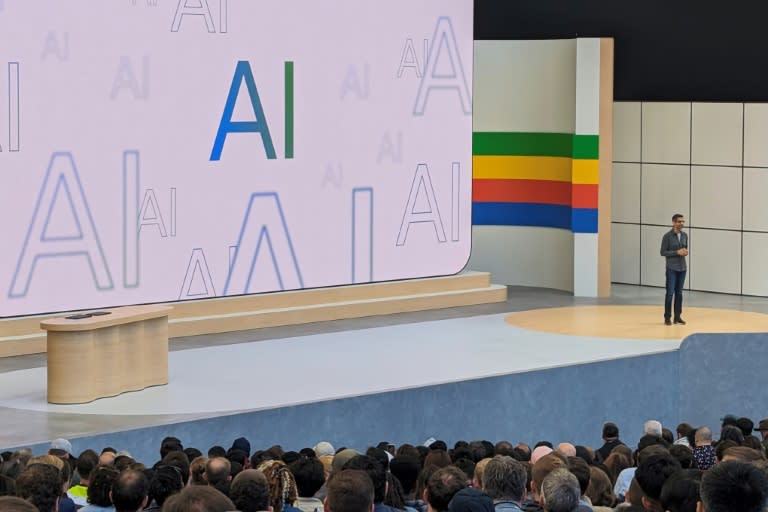Google's AI search revamp puts publishers in a quandary

Google's use of artificial intelligence to sum up answers to search queries has publishers wondering if traffic to their websites will wither.
The internet titan announced Tuesday it is introducing AI-generated answers to online queries in the United States, in one of the biggest changes to its world-leading search engine in 25 years.
The change will soon spread to other countries, arguably reducing the importance of links and web pages for more than a billion people.
And bloggers, news outlets and others who benefit from people clicking on their links via Google's search results could see audiences dwindle if people are sated by what its "AI Overview" serves up.
"It's going to create a negative impact on brands and publishers who rely on organic search traffic for sure," Marketing AI Institute CEO Paul Roetzer said of such a scenario.
"We just have no idea how much, and we don't really know what you can do about it."
AI blurbs generated by Google's Gemini technology will offer succinct summaries of what it found on the internet with only a few links to the online sources that supplied the information.
Research firm Gartner predicts traffic to the web from search engines will fall 25 percent by 2026 because of increased reliance on AI in general.
Roetzer noted that Google has not provided much information about how the change might affect advertisers or publishers, essentially asking them to have faith.
"It's just going to be a grand experiment happening in real time that will move people's businesses one way or the other, depending on how it plays out," Roetzer told AFP.
For now, marketers and publishers have little choice but to keep doing what they are doing, and diversify where they appear online to get noticed in places other than Google searches, he added.
But online audiences have already been splintering as people spend time on TikTok, YouTube, Instagram and other venues -- so opportunities exist to connect with people there, Roetzer added.
Aware of the negative reactions from publishers and content creators, Google executives insisted on Tuesday that the new formula would encourage users to click on a wider variety of websites, not the other way around.
"We're committed to ensuring a vibrant ecosystem," promised Hema Budaraju, a Google search director, at a press roundtable. In the new version, "sites receive more traffic" than before, she said.
- AI-journalism opportunity? -
Roetzer said news outlets and other media creators rich with fresh information could strike deals with Google to make money from licensing the data used in AI models.
"There's a chance that AI in a weird way saves journalism, because these (AI) model companies need real-time data," Roetzer said.
"What if these AI companies just fund journalism because they need it?"
CUNY Graduate School of Journalism professor Jeff Jarvis said he didn't blame Google for trying to improve an online search experience that had become "a mess."
He was leery of AI being used in search, however, because "it has no sense of fact."
Jarvis also advocated news outlets make deals with AI titans to provide credible current information, saying "there's an opportunity here for our industry."
"If you have unique and credible authoritative information, you might benefit," he told AFP.
The advertising industry, meanwhile, could take a hit of billions of dollars, according to Jeff Ragovin, chief executive of Semasio.
His company specializes in using semantics for the better targeting of ads.
"For businesses dependent on search rankings, the uncertainty surrounding AI Overview is alarming," Ragovin said.
Still, Google relies on ads for its revenue, so it's not likely to undermine that part of its business to win the AI race against Microsoft and OpenAI, said Media Growth Partners consultant David Clinch.
"They have to bake advertising into it," Clinch insisted.
"Otherwise, they're creating AI just to kill themselves."
Google pushed back at the suggestion that ChatGPT-style AI interactions could impact its business, saying it has found that people use Search more, and are more satisfied with their results when using Overview.
gc-tu-juj/arp/nro

 Yahoo Finance
Yahoo Finance 